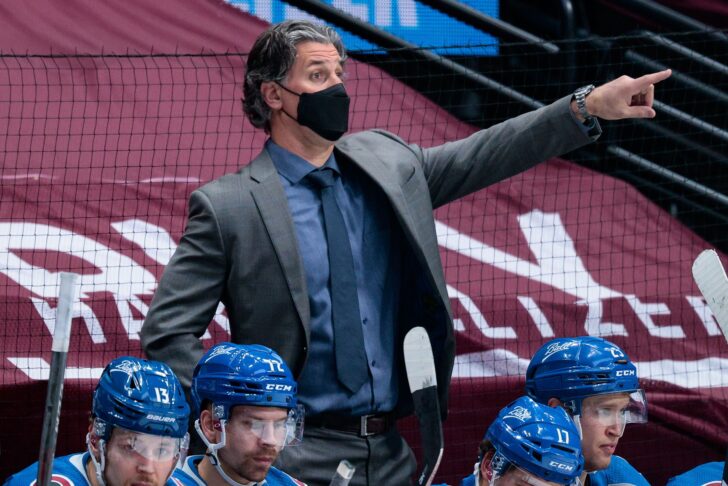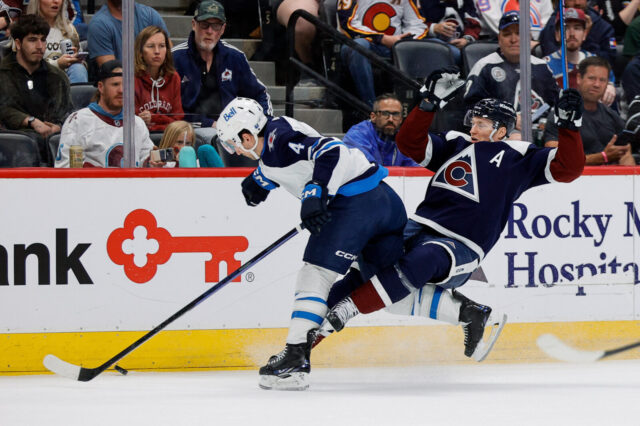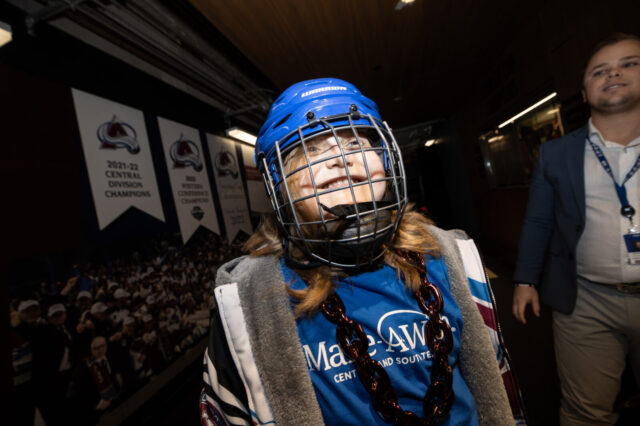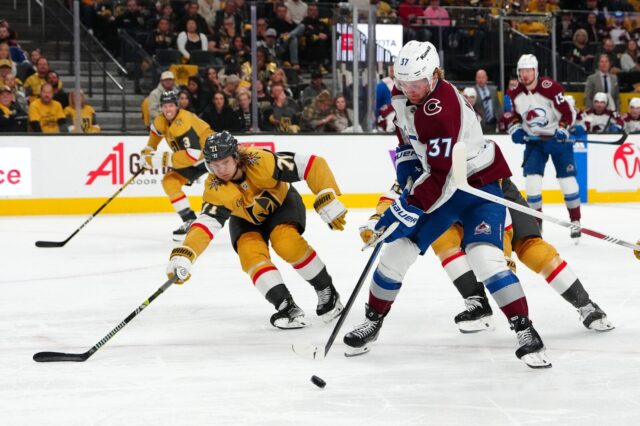I remember it like it was yesterday.
I was at Magness Arena with my outstanding colleague Ron Knabenbauer waiting for an informal practice session to end so we could talk to some returning Colorado Avalanche players and some new recruits.
Before we could even begin to do what we set out for, the phone rang and we were called back to Pepsi Center.
Just like that the era of Patrick Roy was over.
It took two tense weeks during August of 2016 for the Avs to pin down and name their next head coach, a minor-league guy hot off the success of a Calder Cup championship with the American Hockey League’s Lake Erie Monsters.
Highly regarded and recommended, Jared Bednar became the seventh coach in Avalanche history—the 15th for the franchise—and you could immediately tell that his cool and calm demeanor would work to his benefit. And it would have to do, as he had precious little time to prepare for his first season behind an NHL bench.
“There’s going to be definite changes,” the shorter-haired newcomer said at his introductory press conference. Albeit suddenly thrust into the role, he seemed like the right guy for the job nonetheless.
That much was immediately apparent when he hit the ice a few weeks later for the start of training camp. There was the static-electricity buzz that comes with the dawn of a new season, but there was also a different structure and feel to how the systems were going to go moving forward.
“It’s about the process for me. So the way that we come to work every day, our attention to detail, our compete level, our work ethic; those are the things I’m focusing on: our daily habits,” Bednar said during camp. “The expectations and where we fall after that, that’s all the results, and we’re going to work on the process, especially early on in the season-be the best version of ourselves and see where it takes us.”
The seeds of change were planted then, but they took a bit longer to take root. The 2016-17 Season That Shall Not Be Named was ultimately a disastrous affair that saw the burgundy and blue lose 56 of 82 contests and even the draft lottery—which ultimately worked out when defensive wunderkind Cale Makar was selected fourth overall in Chicago.
Things were bad, but there was only one direction to go from there and Bednar was the guy to lead the charge. The following season, Colorado nearly doubled its wins with 43 and managed to make it into a postseason battle with the Nashville Predators. The following two years saw the Avs surge into second-round playoff exits.
This season, the squad was a betting darling to win the Stanley Cup before the NHL even finalized a path to quarantine play. The Avalanche opened the campaign talking Cup-or-bust mentalities. The team has outshot its opponents 8 million to 300 (an exaggeration, kind of) and outscored damn near everyone west of the Rocky Mountains.
So what’s changed these days, aside from the fact that only six players remain from Bednar’s first in the league?
“Different expectations. Significantly different. I think when I first got here we were sort of in limbo, didn’t know which direction the team was going to go. Our performance my first year was not good,” Bednar said following an optional practice on Tuesday. “We started essentially what I guess you’d call a rebuild, a youth movement. Tried to get players in that fit the system that we wanted to play. We’ve talked about that. We wanted to be young, fast, exciting—sort of a team that mimics the teams that have won the Stanley Cups here. And keep the same identity.”
There was always talk about the style of system that Bednar and assistant coach Nolan Pratt liked to play, an up-tempo game featuring heavy support from all players when on defense and a fast breakout up the ice. The trouble is, it requires those types of players to facilitate it.
So for the last five years, the makeup of the squad has slowly adapted to fit the mold of what this organization considers a Cup contender.
“Joe [Sakic] and Chris [MacFarland] and their staff have done an amazing job of bringing in players to help us every year and sort of push this thing in the right direction. I feel like we’ve gotten better ever year and now the expectations are as high as they can possibly be for our team,” said Bednar.
Yet for fans, the expectation of winning the Lord Stanley’s silver chalice—whether realistic or simply a goal-pipe dream—is omnipresent. And quality coaching plays as much a factor in a team’s success as any cohesion—or lack thereof—between the on-ice talent.
So it may come as a surprise to some that, despite two NHL championships and 25 years in Colorado, at the conclusion of this season—his fifth—Jared Bednar will tie Bob Hartley (359 games) as the longest tenured coach in team history. Bednar has already surpassed beloved bench boss Marc Crawford (246), legendary game guru and mustache mentor Joel Quenneville (246), Hockey Hall of Famer Roy (246), two-time play caller Tony Granato (215), and oft-maligned pedagogue Joe Sacco (294).
When it comes to winning, Bednar is already at Avs/Norqiques elite status and ranks third in franchise history with 167 victories. He trails only Hartley (193) and Michel Bergeron (265)—who coached Quebec for eight seasons in the before times.
“It’s cool, third all time with this franchise. They’ve had some good years here,” superstar forward Nathan MacKinnon said of the accomplishment, noting that little has changed from Day 1. “He does a better job of holding guys accountable and being intense when he needs to be, but Bedsy’s still the same guy. An easy going guy. A funny guy. Very approachable, which is great. I think there might be some coaches out there who aren’t as approachable as Bedsy. He tells you what he’s thinking. No mind games or nothing like that.”
Quick to deflect credit for how far he’s taken the club, Bednar simply attributes Colorado’s 2021 status (read: Honda West Division annihilation) to the progress he mentioned during his first day on the job.
“I think we’ve done a good job this year of sort of identifying areas that we needed to get better at or wanted to get better at through last year’s regular season,” he said. “Our team committed to defense and being a better shot-suppression team and chance suppression team. I think it’s come a long way. The depth of our team has come a long way. You know that’s the way we coach our team. We coach our team harder because there’s higher expectations, and we’re just trying to develop the winning habits we need for playoffs.”
“Higher expectations, higher standard of play, more demands on the players, and just trying to keep raising the bar.”



